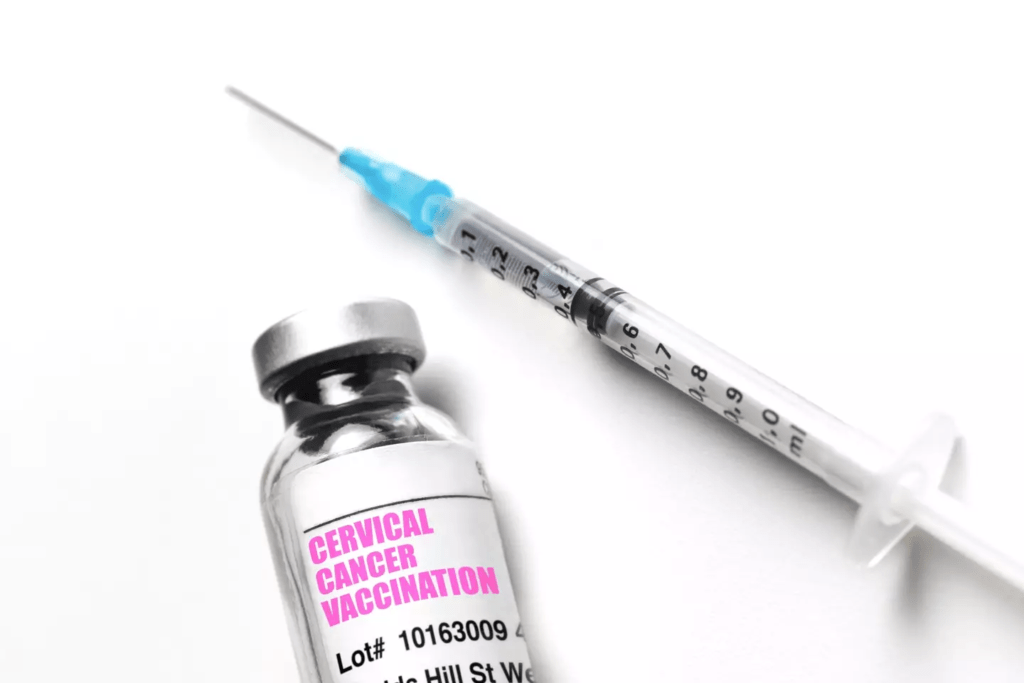Revolutionary ‘Cancer Vaccine’ Could Stop the Disease 20 Years Early: A Medical Game Changer in the Fight Against Cancer

Cancer remains one of the most devastating diseases worldwide, affecting millions of individuals and families every year. But a team of scientists from the University of Oxford, in collaboration with the pharmaceutical giant GSK, is on the verge of a ground breaking medical development: a cancer vaccine that could potentially prevent the disease from developing up to 20 years earlier than previously thought. This pioneering research could transform the way we think about cancer prevention and treatment.
The Unseen Battle Against Cancer
Every year, cancer claims the lives of hundreds of thousands of people in the United States alone. In fact, according to the National Cancer Institute, over two million new cancer cases were diagnosed last year, and 611,720 people succumbed to the disease. These staggering statistics are a constant reminder of the urgent need for advancements in cancer prevention and treatment.

The most common forms of cancer in the U.S. include breast cancer, prostate cancer, lung cancer, colon cancer, melanoma, bladder cancer, kidney cancer, and pancreatic cancer, among others. These types of cancer affect millions and continue to be among the top causes of death worldwide.
As the world grapples with the emotional and physical toll cancer inflicts on patients and their families, scientists have been working tirelessly to develop new ways to tackle the disease before it even begins. A potential solution could lie in the development of a cancer vaccine—a concept that, until recently, seemed like something out of science fiction.
A Game-Changing Discovery: Cancer Prevention 20 Years Ahead of Time
The team at Oxford University, led by Professor Sarah Blagden, has embarked on a mission to understand the early stages of cancer development, known as pre-cancer biology. The goal is not to create a vaccine for existing cancer, but rather to prevent cancer from taking root in the first place—up to 20 years before it typically develops.
This approach is revolutionary. Cancer is often believed to appear suddenly, but in reality, it can take decades for a normal cell to undergo the mutations that eventually lead to cancer. Professor Blagden explained during a recent interview on BBC Radio 4’s Today Programme that “cancer doesn’t come from nowhere.” She noted that the transformation from a normal cell to a cancerous one can often take up to two decades.

As the disease progresses through this pre-cancer stage, it is typically invisible to the body’s immune system, making it challenging to detect. The team’s work aims to pinpoint these early, undetectable changes in the body—long before cancer manifests—and stop them in their tracks with a preventive vaccine.
By vaccinating against this pre-cancer stage, researchers believe they could potentially halt the disease before it ever has a chance to develop into something more dangerous.
The Science Behind the Vaccine: What Sets It Apart?
The key to this cancer vaccine lies in the concept of immuno-prevention. The Oxford-GSK team has already made significant strides in understanding the tumour-specific proteins that are present during the early stages of cancer development. These proteins are what the vaccine will target in order to prevent the cancer cells from progressing.
This innovative approach is different from other cancer vaccines currently being developed, which aim to treat or prevent cancer once it has already established itself. Instead, the goal of the Oxford team is to target pre-cancerous cells, stopping the disease before it has a chance to take hold. This could radically change the landscape of cancer prevention and treatment.
Oxford’s Leadership in Vaccine Development
Oxford University has a long history of leading ground breaking research, particularly in the field of vaccine development. Most recently, the university played a pivotal role in developing the world’s first widely approved COVID-19 vaccine in collaboration with AstraZeneca. The success of this vaccine has given scientists new tools and insights that they are now applying to cancer research.
The GSK-Oxford Cancer Immuno-Prevention Programme has been established as part of this ongoing commitment to cancer research, and it holds immense promise for the future. According to Professor Irene Tracey, Vice-Chancellor of Oxford University, this collaboration is a “step forward” in the fight against cancer and could unlock the potential of cancer vaccines, offering new hope to patients across the globe.

Existing Cancer Vaccines Under Development
While the Oxford team’s work on pre-cancer vaccines is ground breaking, they are not the only researchers exploring new ways to prevent cancer. The university has already launched several other promising cancer vaccines aimed at specific populations:
- LynchVax: A vaccine for individuals affected by Lynch Syndrome, a genetic condition that increases the risk of certain cancers, particularly colon cancer.
- OvarianVax: This vaccine teaches the immune system to recognize and attack the early stages of ovarian cancer, providing new hope for individuals at risk.
- LungVax: Designed to prevent or delay the onset of lung cancer in high-risk individuals, particularly those with a history of smoking or exposure to harmful toxins.
These vaccines represent just a few of the innovative approaches Oxford researchers are using to combat cancer before it develops.
The Future of Cancer Prevention
The development of a cancer vaccine that targets pre-cancerous cells marks an exciting new chapter in the field of cancer prevention. By detecting and targeting the early stages of cancer, it may be possible to stop the disease before it even has a chance to spread. This vaccine, if successful, could change the way we approach cancer treatment, shifting the focus from treating the disease to preventing it.
The potential impact of this research cannot be overstated. A vaccine that can prevent cancer up to 20 years before it develops could save millions of lives and drastically reduce the suffering caused by the disease.
As the world waits for further developments, one thing is clear: the fight against cancer is entering a new era of possibility.
What People Are Saying on Social Media
The excitement around the potential for a cancer vaccine has sparked widespread discussion on social media platforms. Here’s a glimpse of what people are saying about this ground breaking development:
Twitter Reactions:
- @CancerResearchOrg: “Could this be the breakthrough we’ve been waiting for? Scientists at Oxford are developing a cancer vaccine that could prevent the disease 20 years earlier! 🚀 #CancerResearch #Prevention #MedicalBreakthrough” Link to Tweet
- @OxfordScience: “Incredible work being done by our researchers! The development of a pre-cancer vaccine is a game changer in the fight against cancer. 🌍 #CancerVaccine #FutureOfMedicine #OxfordResearch” Link to Tweet
Instagram Posts:
- @healthinnovations: “Imagine a world where we can stop cancer before it even starts! Oxford researchers are working on a cancer vaccine that targets the pre-cancer stage up to 20 years in advance! 💉✨ #CancerPrevention #InnovationInMedicine #OxfordUniversity” Link to Instagram Post
- @globalhealthwatch: “The future of cancer treatment is here! This cancer vaccine could revolutionize how we approach cancer prevention. 🌟 Check out the latest research by Oxford & GSK. #MedicalBreakthrough #HealthForAll #PreventCancer” Link to Instagram Post
Facebook Comments:
- John D.: “If this vaccine really works, it would be one of the biggest medical breakthroughs of our lifetime. Finally, a chance to fight cancer before it even starts. 🙌 #HopeForTheFuture #CancerFree” Link to Facebook Post
- Sophia L.: “As someone whose family has been deeply affected by cancer, this news gives me so much hope. Let’s spread the word about this amazing research! 💪 #CancerAwareness #FightCancerTogether” Link to Facebook Post
These social media reactions demonstrate the global excitement surrounding this ground breaking cancer vaccine. People from all over the world are eagerly anticipating the impact this research could have on cancer prevention and the potential to change lives forever.
Conclusion: A Step Toward a Cancer-Free Future
The emergence of a cancer vaccine that can stop the disease in its early stages offers hope for a world where cancer is no longer a death sentence. As scientists continue to push the boundaries of what we thought was possible, the prospect of a world without cancer seems more achievable than ever before. The research at Oxford and the development of cancer vaccines could pave the way for a future where cancer is no longer the leading cause of death it once was, making this one of the most exciting medical advancements of our time.
For more information on cutting-edge cancer research, check out these articles on cancer prevention and the latest in vaccine technology.
Featured Image Credit: Oxford Cancer via YouTube






